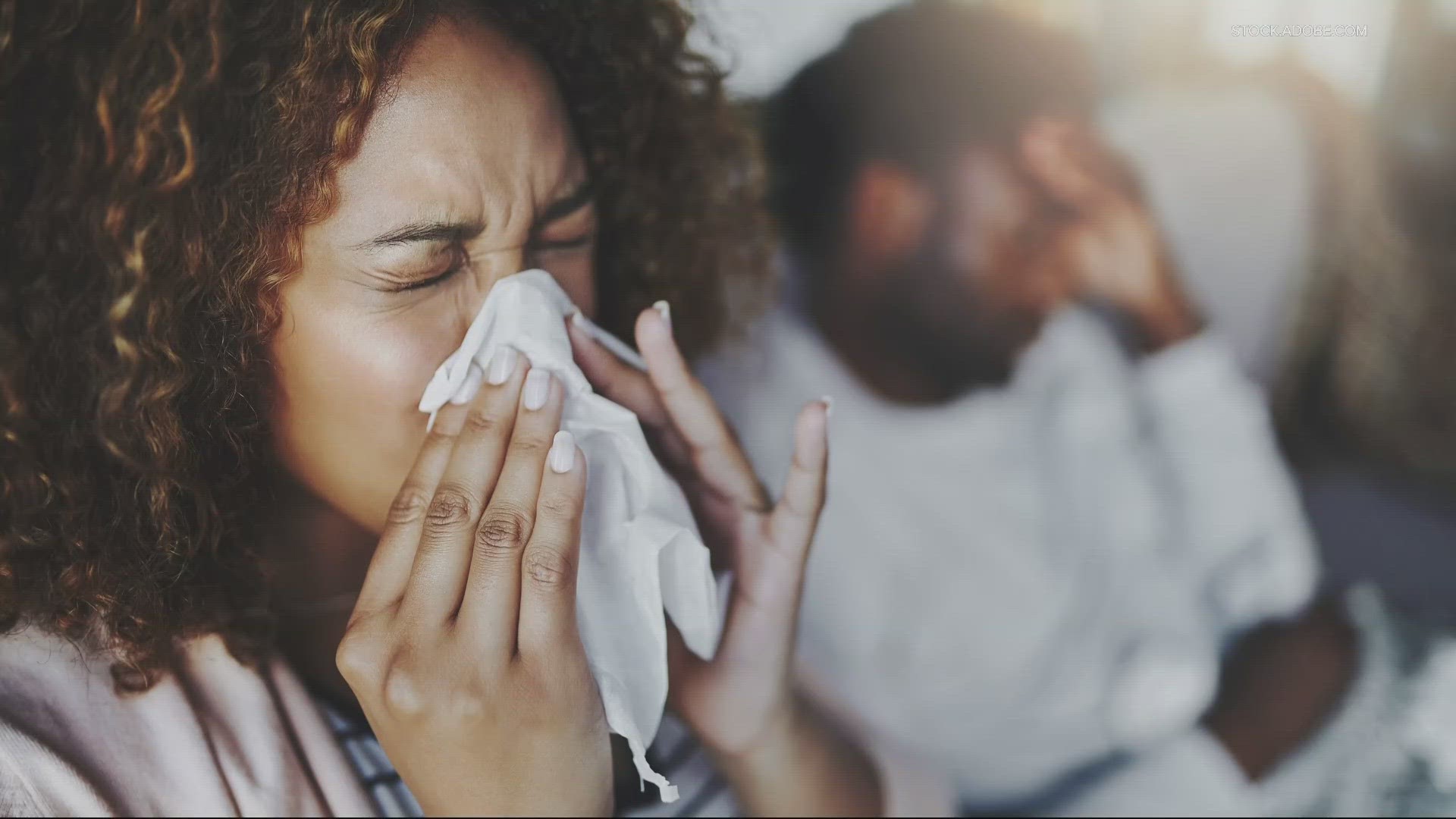PORTLAND, Ore. — The cold and flu season is no longer just that. Now, it’s also the RSV and COVID-19 season.
“What we see in the fall is a spike in all three of the main respiratory viruses that tend to drive a lot of ER visits, urgent care visits, and unfortunately even hospitalizations,” said Dr. Nicole Saint Clair, executive medical director for Regence.
Influenza, RSV and COVID-19 are all part of the seasonal respiratory virus lineup. Luckily, the U.S. has vaccines for the first time to fight the trio of viruses that cause fall and winter misery. But health officials worry that shot fatigue and hassles in getting them will leave too many people needlessly unprotected.
“The time is now. We're right in the peak season for everything. So, if you haven't already, it's definitely a time to check in with your provider,” Dr. Saint Clair said.
This fall and winter, the U.S. is expected to see a similar number of hospitalizations as we did last year, according to the CDC.
“We’re starting to see an uptick of these respiratory viruses called cough, colds, and flu. Kids are missing school, you know, parents are missing work,” Dr. Saint Clair said. “Some of it just has to do with the nature of these viruses and how they cycle.”
Vaccines are the safest way to build immunity from a virus. They help the body learn how to defend itself from disease without the dangers of an infection, according to the CDC.
The CDC recommends everyone six months and older stay up to date on the COVID-19 and seasonal flu vaccines.
“The reason we get a flu shot each year is because the flu actually changes just a little bit. So, we're able to take information that we can gather from the previous flu season and use that to tweak the flu shot a little bit to try to make it even more effective this year,” Dr. Saint Clair said.
That’s now the case with the COVID shot as well.
“You should always really discuss with your provider. In general, multiple vaccines can be given at once. Sometimes you know there can be recommendations of how to stagger, but typically we try to give as many at once as possible to reduce the number of trips you have to take and make sure that you are able to get them,” Dr. Saint Clair said.
The rollout of the COVID vaccine this year has been slow to many pharmacies, but there are resources available in the community.
RSV is another respiratory virus that usually causes mild, cold-like symptoms. While most people get better in a week or two, RSV can be serious for some.
“It’s extremely common. However, it can be really significant and causes severe illness and extremely young babies and newborns as well as seniors can have a little bit of a stronger response,” Dr. Saint Clair said.
The CDC recommends infants and young children get protection from one of two immunizations to protect them from getting very sick with RSV. And now, vaccines from GSK and Pfizer are approved for adults 60 and older. If that’s you, talk to your healthcare providers to see if it’s right for you.
“With all of the respiratory illnesses that we've talked about, influenza, COVID, RSV, they all can lead to complications such as pneumonia — and once you go down that pathway, that's how people can find themselves admitted to the hospital,” Dr. Saint Clair said.
And there are more ways to do your part to keep the season so sick at bay:
- Wash your hands
- Cover your cough
- Stay home if you’re sick
- And consider wearing a mask
Multnomah County has a list of vaccine clinics and resources online. You can also find more info from the state.

